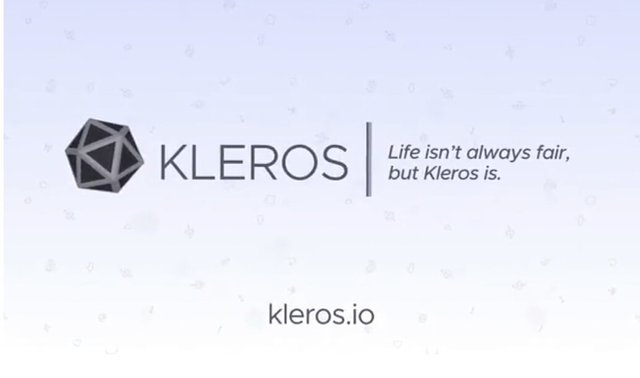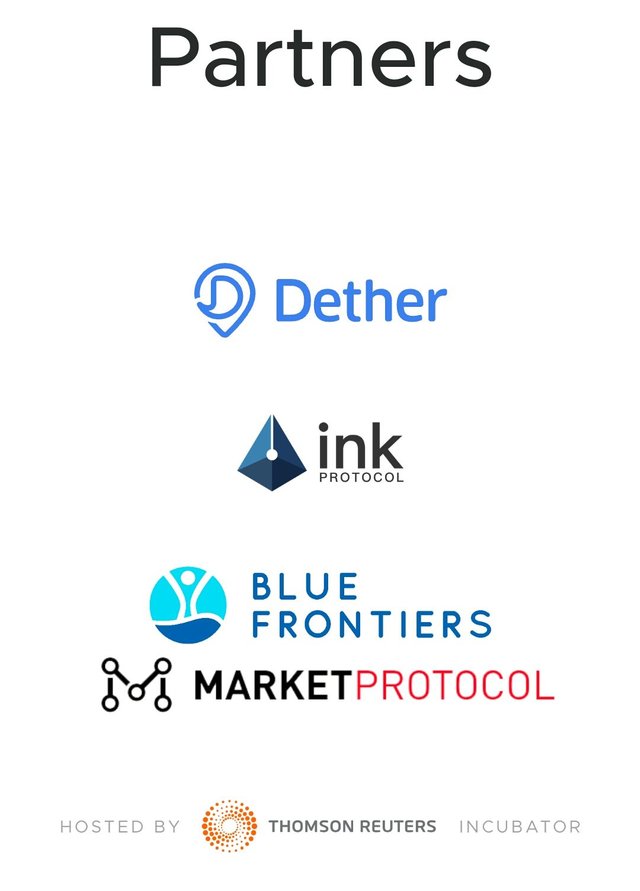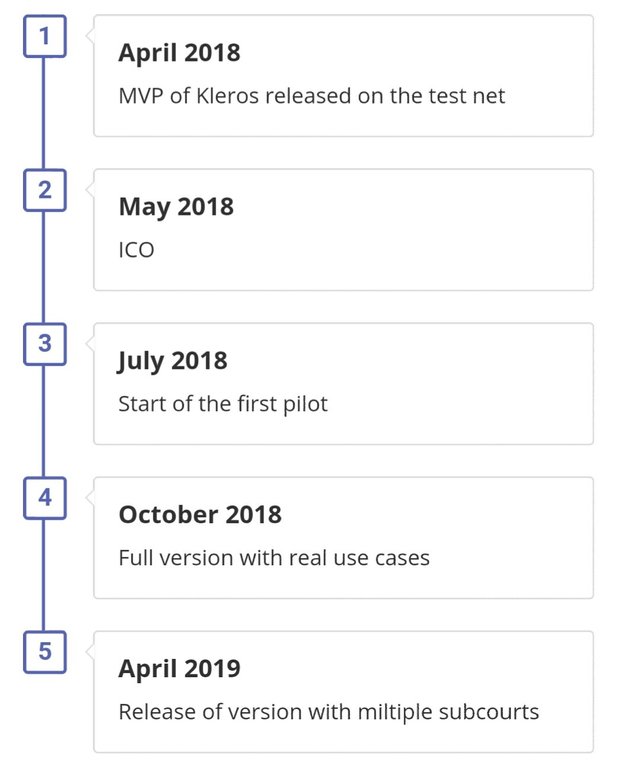
Blockchain technology has been in the headlines for the past few years. While digital currencies such as Bitcoin remain in the spotlight, 'Blockchaining' can change the way in which some modern companies do business. The effect has been to streamline cross-border trade to become more transparent and efficient.
Arbitration may be the ideal dispute resolution system for blockchain related issues, and it won't be surprising to see blockchain arbitration in the near future.
What is Blockchain?
Blockchain Arbitration Rules A blockchain is a database that can record information (for example, transfer bitcoins). Blockchains store data in their "blocks" and "chains" to form a consistent record of information.
Two features make blockchaining novel. First, thousands of computers around the world can store and provide access to identical copies of one blockchain. If changes to one book are made, the entire network is updated. Second, using a non-central database system, technology that stores information about the blockchain makes it very difficult to attack or be damaged.
What is Kleros?
Kleros is a decentralized arbitration platform built on Ethereum that functions as a decentralized third party in any type of contract dispute. The Kleros justice system consists of an epistemic (court) machine - a tool for finding truth about events from a series of confusing clues and agents (jurors) - who follow a procedure in which input (evidence) is used to send outputs (decisions). The whole adjudication process is automatic, less time consuming, efficient and reliable. With Kleros, supporters in the crowdfunding platform can claim a refund when the team fails to deliver the promised results, the customer can claim a refund if the quality of work delivered is far from agreement by both parties.
TYPES OF DISTANCE
Kleros handles all types of arbitration disputes such as disputes relating to car insurance, home insurance, commercial insurance, freelance, package delivery, international shipping, air transportation, sea transportation, land transportation etc.
BENEFITS FOR SMALL BUSINESS
Let's look at John, who runs a small-scale freelance business. He was hired by a company to design a website. Both parties agree a service fee of $ 400 and $ 200 is payable in advance and the remainder must be paid after completing work. John provided quality work on time as promised, but the company refused to pay the rest. All attempts to get the balance proved to fail. John would have no choice but to accept his loss and move because taking the company to court with a very small amount of $ 200 would be completely nonsense because the arbitration fees were very expensive and the justice system was slow. But if Klerost had been included in a previous business agreement, no matter what amount of money involved, John would be guaranteed to have a balance paid in full when the matter was seen by the Kleros jury.
No doubt it will be an impetus for small businesses that lack or cannot afford the expensive arbitration fees charged by lawyers and other similar platforms. Kleros is fast, cheaper, transparent and reliable and will indeed help strengthen the growth of small businesses.
BENEFITS FOR BIG COMPANIES
Big companies like Amazon, eBay, Etsy etc. Most of the time spent valuable time and resources tracking goods, answering all questions in an effort to resolve the problem with the customer. With Kleros, their "headaches" can be a thing of the past because the time spent tracking items, answering questions can be used productively. Kleros' smart jury will ensure that goods are tracked properly and an honest vote is given during dispute resolution to ensure that the right party wins.
Future work
Contract Privacy
Resolving disputes may require parties to disclose special information with the judge. To prevent outside observers from accessing this information, in the future, natural language contracts
Improved Random Number Manufacturing
1. Initialization
2. Calculate random master values
3. Get results on the blockchain
4. Get all random values:
Punish the jury who revealed their voices too early
1. Only express his voice. The party will not have proof that it effectively voted like that. That
the jury can lie about it and the other party has no way to verify.
2. Express the voice and commitment. The party will have proof of its vote, but the party
will also be able to steal this jurors PNK.
Liquid Voting in Government
In the section on Governance mechanisms above we explain how token holders can make a
number of decisions for the platform. In this section, we explain future plans to allow token holders
Application
Kleros is a general and multipurpose system that can be used in a large number of situations. We are present
some examples of possible use cases:
• Escrow:
To pay for off-chain goods or services, funds can be entered into smart contracts. After receiving goods or services, the buyer can open funds to the seller. In the event of a dispute, Kleros can be used to have a smart contract to either return the buyer's money or pay the seller. Kleros-based escrow systems are available, Escrows can also be more complex. For example for a lease agreement, the tenant may be required to pay a deposit. In case the property is damaged and the tenant does not approve compensation, a dispute can be made by the owner to claim part of the security deposit.
• Micro-assignment:
Decentralized platforms can pay for microtasks (by means of Amazon Mechanical Turk (1)). Tasker will provide a security deposit and send answers
microtasks. The task will be replicated. If a task gets a different answer, the assignor can admit
their mistake, this will transfer part of the security deposit to the assignor who does the job correctly. If several assigners remain in their positions, a dispute resolution process will take place and the lost assignment will have part of their security deposit transferred to the winner that
• Insurance:
The guarantor will pay a fee to the guarantor to get compensation in certain cases
An event will occur. The guarantor must deposit a security deposit that can be used by several insurers (respecting risk management rules). When an insured event occurs, the insurance company can validate it and compensate the insurance company. If the insurance company does not validate the event, the dispute resolution process will occur. If insurance wins the dispute resolution process, funds from the guarantor's security deposit will be transferred to the insured. In terms of security
the deposit is linked to several insurers that claim more than the deposit, a dispute resolution process will also be needed to determine how the funds should be divided between the insurers.
• Oracle:
The decentralized data feed that will be used by smart contracts is one that was previously imagined
use the Ethereum (8) case. A party (which can be a smart contract) asks a question. Everyone can make a deposit and send answers. If everyone gives the same answer, it is returned by the Astrologer. If there are several answers, a dispute resolution procedure will occur. Oracle returns the answers given by the dispute resolution process and the parties that incorrectly answer lose their answer to the deposit given to the honest sender. Realitio provides Oracle services based on these principles, giving options to use Kleros for subsequent disputes. Moreover, other applications that use Realitio oracle, such as CryptoUnlocked, indirectly depend on the dispute resolution.
• Curated list:
Curated lists can be white or blacklisted. For example, a white list can list smart contracts that have carried out appropriate audit procedures. A blacklist can include ENS (Ethereum Name Service) names that are registered by parties that are not related to that name (for example, an evil party can register "kleros-token-sale.eth", to deceive people into sending funds to that address). The parties can send goods to the list by placing a security deposit. If no one disputes that the item was included in the list for sufficient time, the name is added and the deposit is returned. If several parties compete by giving bail, disputes the resolution process occurs. If the item is considered to belong to the list, it is added and the Sender gets a deposit from the competing party. If not, the deposit from the sending party is given to the competing parties. Kleros has been used to list curated tokens that meet various properties (for example, such as ERC20)
• Social networking:
Preventing spam, fraud and other abuse is a challenge for decentralized social networks. The parties can report violations of network policies and provide security deposits. If the violation is debated, a dispute resolution process occurs. If governed there is no violation happened, the reporter lost his security deposit to the accused party. If the violation is not contested or confirmed by Kleros various effects can be implemented: the content can be deleted, the poster content can lose the registration deposit and the reach of other posts can be reduced.
Kleros is an opt-in court system that can be chosen by parties who have entered into agreements as their arbitrators to resolve disagreements in the event of a dispute. During contract construction, they must choose Kleros integration details such as:
The sub-page: The special court that deals with the topic of the contract.
Number of jurors: When a dispute arises, it will be handled by knowledgeable people in the room.
The result: When a dispute arises, the judges will be faced with a number of possible outcomes from which will be chosen.
All of these were chosen beforehand and in the event of a dispute, these chosen parameters will be used to adjudicate justice.
PRIVACY: In the dispute resolution process, the parties involved may be required to share sensitive information with judges who are safe, protected and inaccessible to the general public. After making a contract, the creator submits a contract in this format; hash {contract_text, option_list, salt}, where contract_text is the simple English text of the contract, option_list is an option label that can be chosen by the judge and salt is a random number chosen to avoid using rainbow tables. Both parties send each other contracts through asymmetric encryption. In case of a dispute, each party must disclose {contract_text, option_list, salt} to the judge who can verify that the correspondence with the hash has been submitted.
JURY SELECTION: Individuals who have an interest in serving as judges in Kleros are required to pay fees using a token called Pinakion (PNK). The probability of being drawn as a judge for a particular dispute is proportional to the number of tokens stored. In other words, the higher the number of tokens stored, the higher the likelihood of being drawn as a jury member. Judges who fail to deposit Pinakions will not have the opportunity to be withdrawn as jury members and this is to ensure that inactive jury members are not selected. The final selection of judges is carried out by Kleross randomly after the candidates choose a particular court and store their tokens. The number of times a user is withdrawn for a dispute (known as weight) determines the number of votes he will receive in the dispute and the number of tokens that will be won or defeated during the redistribution of the token.
VOTE: After evaluating the evidence, the jury sends their votes in this format; hash {vote, salt, address}, where the vote is the judge's decision, salt is a random number chosen to avoid the use of the rainbow table, the address is the Ethereum address of the judge. Because two users cannot have the same Ethereum address, it makes each jury's commitment different and prevents jury members from copying other people's commitments. After the vote, a jury revealed the {vote, salt} and Kleros smart contract will verify that it is in accordance with the commitment. After a judge makes a commitment, his voice cannot be changed and is not visible to others. Judges who fail to express their votes will be punished.
ARBITRATION FEE: Judges are paid arbitration fees for the good work they do and this is determined by the subregion in which the dispute is played. Arbitration fees can be paid by the party making the dispute or the party who filed the appeal. Before settling the dispute, both parties will pay the arbitration fee and if one party fails to comply, the smart contract will decide in favor of the party making the arbitration fee without even attempting a dispute in court. If both parties make deposits, the winning party will be replaced after the dispute is resolved. In the case of an appeal, both parties will be asked to pay the arbitration fee but the appellant will pay an additional deposit equal to the arbitration fee. If the jury decides to support the appellant, the arbitration fee will be returned, but if the applicant loses,
APPEAL: If a party is not satisfied with the jury's decision, he can submit an appeal. Each new appeal will have twice the number of previous jury members plus one. Parties requesting appeals from the verdict must pay increased appeals due to the increasing number of jurors. It is important to note that judges at the appellate level are not paid and this gives the jury an incentive to provide an explanation of their decision.
Kleros ensures the transparency, reliability and fairness of the jury selection system in an extraordinary manner. The jury deposits tokens to qualify for court disputes. After the dispute resolution is over, the jury who votes in favor of the winning party is given incentives with additional tokens while those who vote in favor of the losing party are not given a prize but forfeit the tokens deposited to the winning jury as well.
This incentive method is exceptional and ensures a reasonable, honest and impartial assessment by the jury at all times.
Why do Kleros Need Their Own Tokens?
First and foremost, PNK is protection against Sybil attacks. In order for the attackers to flood the jury pool, they need to buy enough PNK so that they are selected enough time to be judges for the same case to change the outcome. In general, this means that attacks require 51% of the total tokens (at stake).
Attackers may be lucky in rare circumstances and be chosen for two of the three jury venues with only a small fraction of PNK. However, to defend an attack through an appeals process, it is necessary to select a majority of jurors in a larger and larger jury, which will only be possible if the attacker really has a majority PNK. Therefore, substantial economic resources are needed to carry out 51% attacks.
So far, this is still true if we have prospective judges who risk ETH and not PNK. However, using native tokens offers several key benefits to minimize the risk of 51% attack compared to using external cryptocurrency.




Conclusion
introducing Kleros, a decentralized court system that allows smart contract arbitration by crowdsourced jury members relying on economic incentives. You can see a summary of how Kleros works
Further information:
Kleros website: https://kleros.io/en/
Kleros WhitePaper: https://kleros.io/whitepaper_en.pdf
Kleros Medium: https://medium.com/kleros
YouTube Cleric YouTube: https://www.youtube. com / channel / UCEjwygFVVrSXhPNEKfweypA
Kleros Telegram: https://t.me/kleros
Kleros Twitter: https://twitter.com/kleros_io
Kleros Github: https://github.com/kleros
Kleros forum: https: // forum. kleros.io/
Author: Adiva16
Bitcointalk: https://bitcointalk.org/index.php?action=profile;u=2343007
0 Komentar